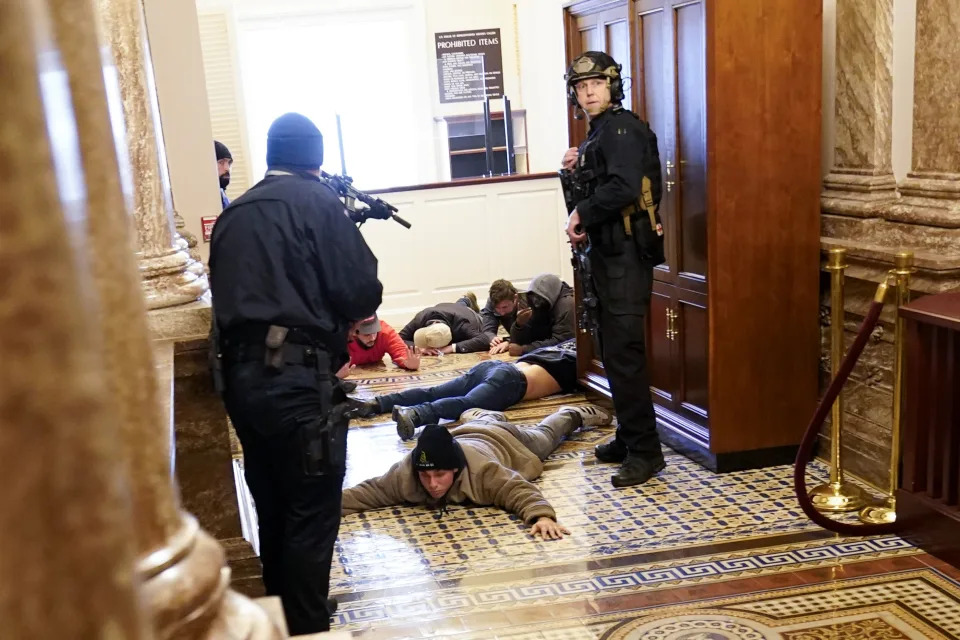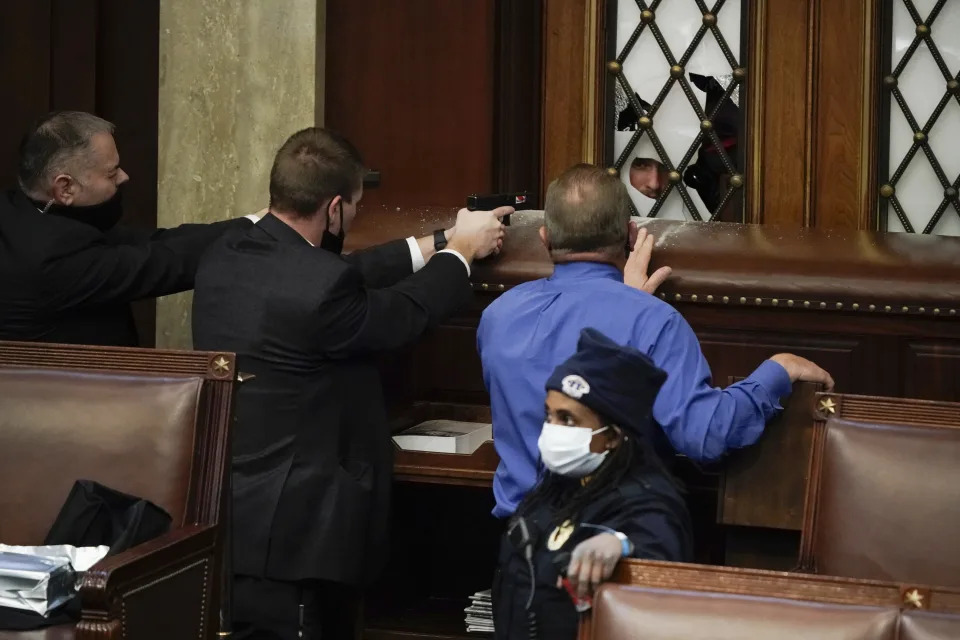Daily Beast
Why Does Kevin McCarthy Even Want to Be Speaker at This Point?
Charlotte Clymer – January 5, 2023

As the overhead lights dimmed in the House chamber on Wednesday evening, beckoning those present to begin their commutes back to apartments scattered across D.C., Republican Leader Kevin McCarthy put on a brave face and chatted amiably with colleagues.
It had been a brutal two days. After six ballots and six nominating speeches by oblivious colleagues and six opposing anti-McCarthy speeches that wouldn’t have seemed out-of-place in a Parks and Recreation town hall, McCarthy had failed to gain any movement against a bloc of far-right conservatives who seemed determined to end his dream of becoming Speaker of the House.
The California Republican looked about as lost as Donald Trump in a public library. I’m sure he thought it wasn’t supposed to be this way, but given who we’re talking about, it was inevitable. When it comes to leadership, Kevin McCarthy has always been a resumé in search of a reason.
Kevin McCarthy’s Speaker Battle Shows Newt Gingrich’s GOP Is Truly Dead
In 2010, McCarthy published the book Young Guns: A New Generation of Conservative Leaders, along with co-authors Eric Cantor and Paul Ryan. Touted as the future of conservative politics, the trio staked out specifically defined roles meant to highlight their strengths: Cantor was the captain, Ryan was the thought leader, and McCarthy was the tactician.
Had he not been thumped in a shocking primary upset to a Tea Party candidate in 2014, Cantor would have likely become the first Jewish Speaker of the House. Ryan would go on to win the gavel after the retirement of Speaker John Boehner and spend four painful years negotiating the rise of Trump, before absconding after the utter shellacking his party took in 2018.
Say what you will about Cantor and Ryan, but they weren’t bereft of vision. They had specific policy goals, made them known, and weren’t afraid to fight for their beliefs, even with members of their own party, even on principle, however inconsistent that may have been.
Unlike his fellow Young Guns, Kevin McCarthy doesn’t appear to have any sort of vision beyond his own quest for power. His current and past GOP colleagues certainly seem to think so.
In a text exchange with CNN contributor Alyssa Farah Griffin—a former Trump administration official—she had little sympathy for the embattled GOP leader: “I’m sorry but McCarthy bears tremendous responsibility for this current disaster. He empowered the Hard Right, who are now blocking him, all while he’s telling his Conference that they can’t support anyone other than him because that would empower the hard Right.”
Stephen Colbert Can’t Believe He’s Agreeing With Matt Gaetz
Last month, Matt Gaetz published an op-ed in The Daily Caller claiming: “Every single Republican in Congress knows that Kevin does not actually believe in anything. He has no ideology. Some conservatives are using this fact to convince themselves that he is the right leader for the moment, as McCarthy is so weak he’ll promise anything to anyone.”
Gaetz also pointed to former GOP Rep. Bill Thomas (R-CA), McCarthy’s former mentor, who told a reporter last month: “Kevin basically is whatever you want him to be. He lies. He’ll change the lie if necessary. How can anyone trust his word?”
Many reporters who have covered him seem to agree, perhaps with a bit more subtlety.
This past June, a blistering op-ed from Politico’s Michael Schaffer summed up McCarthy in a brutal paragraph of descriptions from journalists, with various takes on his lack of policy curiosity and, notably, a 2018 article by Julie Hirschfield Davis that described him as “a golden retriever of a man.”
OK, perhaps not so much subtlety.
Seriously, why does Kevin McCarthy want to be speaker? Has anyone figured that out? Has anyone asked him directly? I don’t think he knows beyond some half-baked effort at his legacy. He has articulated no particular vision for the country. His colleagues don’t seem to trust him, and the reporters who have followed his career aren’t impressed with his knowledge of policy.
McCarthy has scrambled in recent weeks to placate his detractors in the caucus, offering numerous concessions—this morning going so far as to concede a rule that would permit any individual member to call for a no-confidence vote on his leadership, an embarrassing reversal that he previously vowed not to accept.
Holdouts Take Kevin McCarthy’s New Offer and Vote for Him to Shove It
It’s surreal to be as progressive as I am—in many ways, the antithesis of Kevin McCarthy—and understand, in ways he apparently doesn’t, that the more he offers concessions and grovels to these people, the more he drives them away. They dislike him not because of any glaring differences in policy but because he’s weak. And by “weak,” I mean that he’s spiritually weak. What does Kevin McCarthy stand for at the end of the day? What does he believe in? He doesn’t even have the good sense to believe in himself. Who wants to follow a leader like that? I sure as hell wouldn’t.
Even those Democratic lawmakers who opposed former Speaker Nancy Pelosi in previous leadership elections affirmed their respect for her as a colleague, which is why she won nine consecutive leadership elections and didn’t need more than one ballot in any of them.
I think even if McCarthy manages to pull a rabbit out of his hat and gets to that magic majority threshold for election, he’s going to be an ineffective speaker. His colleagues don’t respect him. They certainly don’t fear him. He’s a paper tiger in a room full of matches.
He fears his own caucus and craves their approval, and they know it.














